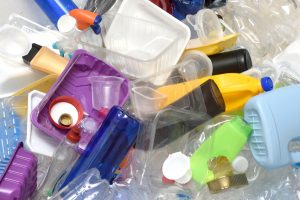 For many businesses, a common barrier to recycling is a lack of resources. For businesses that handle recyclable cans, PET bottles, or cartons, depackaging equipment can help. While there are depackaging companies that can handle this task for you, many businesses now opt to complete the simple process themselves. Typically, these types of containers are not recycled because, in order to do so, they must first be rinsed of their liquid waste. A depackaging machine can do this task for you, while also benefiting your recycling efforts in other surprising ways. Here’s how.
For many businesses, a common barrier to recycling is a lack of resources. For businesses that handle recyclable cans, PET bottles, or cartons, depackaging equipment can help. While there are depackaging companies that can handle this task for you, many businesses now opt to complete the simple process themselves. Typically, these types of containers are not recycled because, in order to do so, they must first be rinsed of their liquid waste. A depackaging machine can do this task for you, while also benefiting your recycling efforts in other surprising ways. Here’s how.
1. No Pre-Cleaning Required
Depackaging is an integral part of waste management processes for zero waste businesses in the food industry. Thanks to this technology, they can easily separate recyclable containers from the food waste that may be inside. Food depackaging equipment varies, but popular models either unscrew bottles, or perforate cans, cartons, and bottles and then rinse whatever liquid is contained inside. This is particularly good for depackaging milk, yogurt, soft drinks, BBQ sauces and ketchup, ice cream, liquid soaps and detergents, and more.
Often, precleaning keeps people from recycling. However, with the right depackaging equipment, you can simply throw full containers into the machine. These containers are perforated or unscrewed by the machine. Then, the depackaging equipment works its magic. Food waste and other liquids inside containers are removed.
2. Recyclable Material is More Easily Managed
Not only does depackaging save you time that would otherwise be devoted to emptying containers of their waste, it can also save you money in your pursuit of zero waste. The best depackaging systems also have compaction chambers. After your containers are perforated and emptied, they are shredded or compressed tightly. With depackaging equipment that also has a high compaction rate, you’ll be able to load more recyclable waste on a single truck and make fewer trips to recycling centers or Waste to Energy plants. Because of this, you’ll spend less money on managing your recyclable waste.
3. Non-recyclable Items Can Be Repurposed
A little-known fact: depackaging equipment can also help businesses manage non-recyclable items like styrofoam or other similar materials. If your business is often left with EPS Polystyrene fish boxes and packaging, EPS dust, polypropylene packaging and insulation foam, or polypropylene (EPP) packaging, depackaging equipment can help you manage this waste. Like recyclables, these items can be emptied of any waste they may hold.Then, the foam that is left over can be condensed to create large blocks of foam. These blocks can then be sold, creating a new revenue stream for your business.
Integrate Depackaging Into Your Waste Management Process with KenBay!
If you think your waste management process could benefit from depackaging, let KenBay help you find the perfect equipment to get the job done. Our SC 2000 and SC 3000 Screw Compactors are configured for depackaging, dewatering or foam densifying. If you want to make your facility landfill free, these screw compactors can be an integral part of your waste management system. Low maintenance and heavy-duty, a KenBay screw compactor is capable of handling large throughputs of material while still maintaining a high compaction rate continuously throughout the operation.
We know that waste management can be a burden. But, with KenBay, you’ll have the tools you need to help make the job a little easier. The next time you evaluate your waste products and waste management strategy, consider integrating one of our industrial trash compactors into your processes.
Because our depackaging trash compactors will reduce the weight and size of your recyclable waste, they are a great way to cut down your waste removal costs and improve the efficiency of waste management.
Don’t let something like waste get in the way of your business operations. If you’re interested in learning more about depackaging or finding a committed consultant to help you reduce your waste, call KenBay. We can tell you more about our services, no matter what industry you’re in, or how much waste you are creating!
Photo credit: Getty Images / photka


